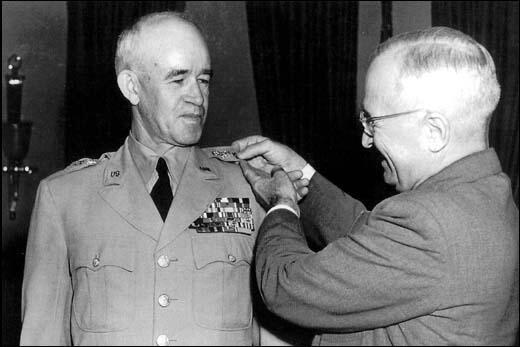On this day on 22nd September
On this day in 1529 Cardinal Thomas Wolsey stripped of office as Lord Chancellor of England. Henry VIII had become convinced that Wolsey's loyalties lay with the Pope, not England. Wolsey blamed Anne Boleyn for his situation and he called her "the night Crow" who was always in a position to "caw into the king's private ear". Wolsey's palaces and colleges were confiscated by the crown as a punishment for his offences, and he retired to his home in York. He began secretly negotiating with foreign powers in an attempt to get their support in persuading Henry to restore him to favour. His leading advisor, Thomas Cromwell, warned him that his enemies knew what he was doing. He was arrested and charged with high treason. Wolsey died on 29th November 1530 before he could be brought to trial.
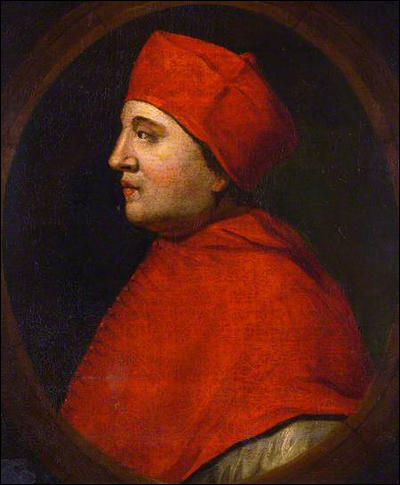
On this day in 1735 Robert Walpole becomes the first British "Prime Minister". He was also given 10 Downing Street by Prince George, which became the permanent home of all future Prime Ministers. Walpole believed that the strength of a country depended on its wealth. The main objective of Walpole's policies was to achieve and maintain this wealth. For example, he helped the business community sell goods by removing taxes on foreign exports. Walpole did all he could to avoid war, as he believed it drained a country of its financial resources. However, in 1739 Britain became involved in a war with Spain. George II was in favour of the war and became Britain's last king to lead his troops into battle. Walpole, who thought the war was unnecessary, did not provide the dynamic leadership needed during a war. The Tory opposition accused Walpole of not supplying enough money for the British armed forces. Walpole gradually lost the support of the House of Commons, and in February 1742 he was forced to resign from office.
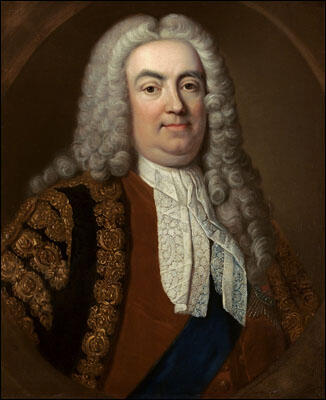
Robert Walpole
On this day in 1761 the coronation of King George III of the United Kingdom took place. He had recently married Charlotte of Mecklenberg-Strelitz, who over the next few years gave birth to fifteen children. A year after becoming king, George III arranged for the Earl of Bute to become prime minister. This decision upset a large number of MPs who considered Bute to be incompetent. North's leading critic in the House of Commons was John Wilkes. In the newspaper that he established, The New Briton, Wilkes accused the king and his ministers of lying. Wilkes became a symbol of free speech and the king was blamed when he was imprisoned for 22 months for libel. Although Bute only stayed in office for a year, he remained an important influence on George's political opinions.
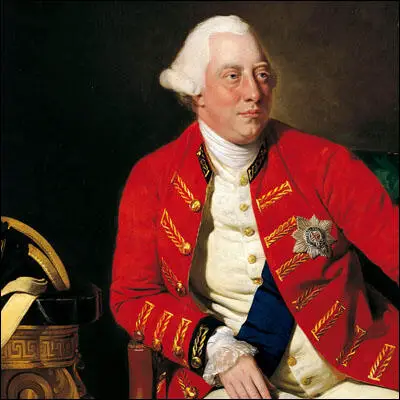
On this day in 1791 Michael Faraday was born in Newington Butts. Faraday's greatest contribution to science was in the field of electricity. In 1821 he began experimenting with electromagnetism and by demonstrating the conversion of electrical energy into motive force, invented the electric motor. In 1831 Faraday discovered the induction of electric currents and made the first dynamo. In 1837 he demonstrated that electrostatic force consists of a field of curved lines of force, and conceived a specific inductive capacity. This led to Faraday being able to develop his theories on light and gravitational systems.
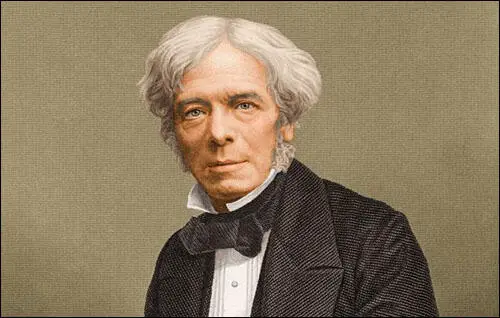
On this day in 1831, the House of Commons passed the Reform Bill. However, the Tories still dominated the House of Lords, and after a long debate the bill was defeated. When people heard the news, riots took place in several British towns. The most serious of these disturbances took place in Bristol on 31st October. In London, the houses owned by the Duke of Wellington and bishops who had voted against the bill in the Lords were attacked. With London the scene of huge and stormy demonstrations, Earl Grey and his Whig government tried again to introduce a Reform Act. Finally, on 13th April 1832, the Reform Act was passed by a small majority in the House of Lords.
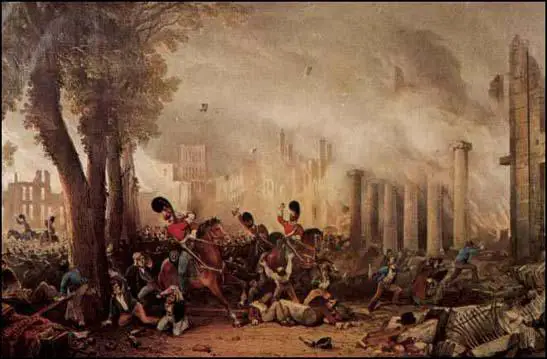
On this day in 1862 President Abraham Lincoln issued his Emancipation Proclamation. Lincoln told the nation that from January, 1863, all slaves in states or parts of states, still in rebellion, would be freed. However, to keep the support of the conservatives in the government, this proclamation did not apply to those border slave states such as Delaware, Maryland, Kentucky and Missouri that had remained loyal to the Union.
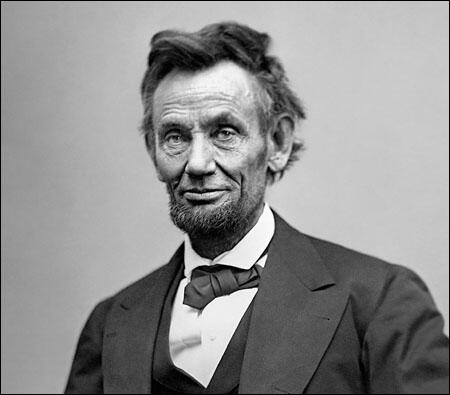
On this day in 1880, Christabel Pankhurst, a leading Suffragette, was born in Manchester. In 1903 she was co-founder of Women's Social and Political Union (WSPU). In 1907 some leading members of the Women's Social and Political Union began to question the leadership of Christabel and Emmeline Pankhurst. These women objected to the way that the Pankhursts were making decisions without consulting members. They also felt that a small group of wealthy women like Emmeline Pethick-Lawrence were having too much influence over the organisation. In the autumn of 1907, Teresa Billington-Greig, Elizabeth How-Martyn, Dora Marsden, Helena Normanton, Margaret Nevinson and Charlotte Despard and seventy other members of the WSPU left to form the Women's Freedom League (WFL).
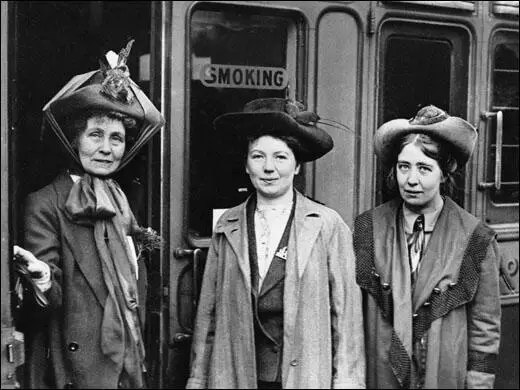
On this day in 1885 Lord Randolph Churchill makes a speech in Ulster in opposition to Home Rule e.g. "Ulster will fight and Ulster will be right". At this time he was leader of the "Tory Democracy" movement. He defined this as merely popular support for the monarchy, the House of Lords, and the Church of England - the traditional bulwarks of Toryism. Churchill showed little interest in social questions and he did not advocate expensive welfare measures. Churchill took no interest in working-class housing, although it was a fashionable issue at the time. His popularity with the masses owed little to his direct interest in their welfare, but much to the aggressiveness of his platform speeches. His main target was Gladstone who he described as "the greatest living master of the art of personal advertisement".
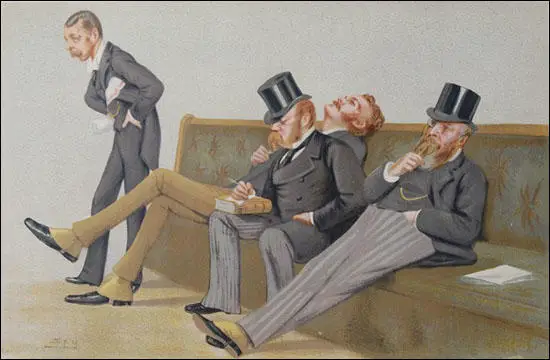
Henry Drummond Wolff and John Eldon Gorst (1st December 1880)
On this day in 1896 Queen Victoria surpasses her grandfather King George III as the then longest reigning monarch in British history (59 years). During her time as Queen she had eight prime ministers, Robert Peel, Lord John Russell, Earl of Derby, Earl of Aberdeen, Lord Palmerston, Benjamin Disraeli, William Gladstone and the Marquis of Salisbury.
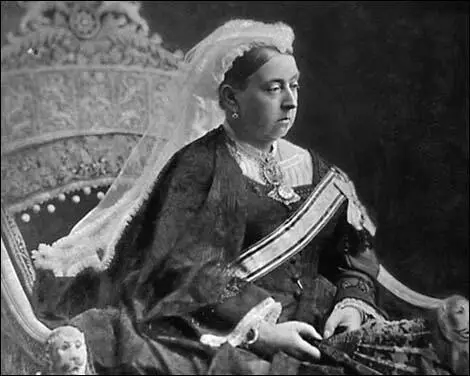
On this day in 1899 Veit Harlan was born in Berlin. Harlan was a supporter of Adolf Hitler and was director of pro-Nazi films such as Jugend (1938), Verwehte Spuren (1938), Das Unsterbliche Herz (1939), and Jud Süss (1940), an anti-semitic film which was shown in occupied countries to whip up hostility towards locals Jews. After the Second World War Harlan was arrested and imprisoned by the Allies. However, in April 1949, he was found not guilty of "crimes against humanity".
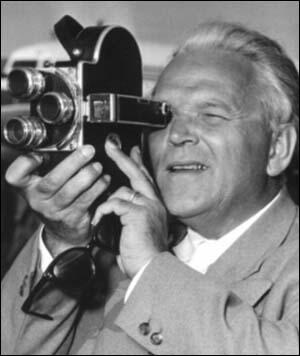
On this day in 1918 Hans Scholl was born in Crailsheim, Germany. Along with his sister, Sophie Scholl, Alexander Schmorell, Jürgen Wittenstein, Christoph Probst and Willi Graf. established the White Rose group at the University of Munich in 1942. Most of the men were in the German Army but were at the university being trained as doctors. In June 1942 the White Rose group began producing leaflets. They were typed single-spaced on both sides of a sheet of paper, duplicated, folded into envelopes with neatly typed names and addresses, and mailed as printed matter to people all over Munich. At least a couple of hundred were handed into the Gestapo. Hans Scholl, Sophie Scholl, Christoph Probst and Alexander Schmorell were all executed on 22nd February 1943. There is a history lesson on the White Rose group here.
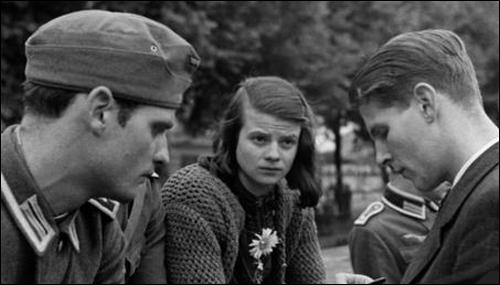
On this day in 1939 Oliver C. Gilbert and Victor Rowe, became the first members of the Right Club to be arrested. This secret society was an attempt to unify all the different right-wing groups in Britain. It was founded by Archibald Ramsay, the Tory MP in May, 1939. In his autobiography, The Nameless War, Ramsay argued: "The main object of the Right Club was to oppose and expose the activities of Organized Jewry" Unknown to Ramsay, MI5 agents had infiltrated the Right Club. This included three women, Joan Miller, Marjorie Amor and Helem de Munck. The British government was therefore kept fully informed about the activities of Ramsay and his right-wing friends which included spying for Nazi Germany. Ramsay was eventually arrested but Tory members of the House of Lords were never prosecuted.
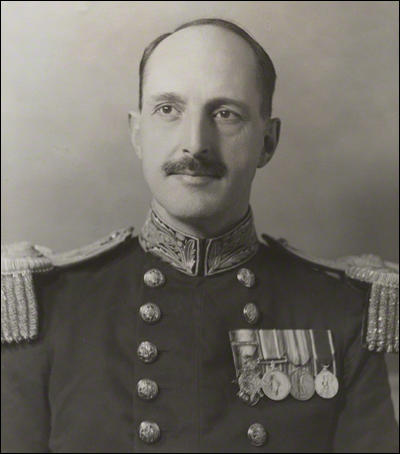
On this day in 1950 Omar Bradley promoted to rank of 5-star general in the United States Army. Bradley was placed in charge of the 1st US Army in 1944 and after arriving in Britain helped to plan Operation Overlord. After the D-Day landings Bradley was appointed commander of the 12th Army Group. Promoted to four-star general on 12th March 1945, he succeeded Dwight D. Eisenhower as army chief of staff in 1948. The following year he became chairman of the Joint Chiefs of Staff.
